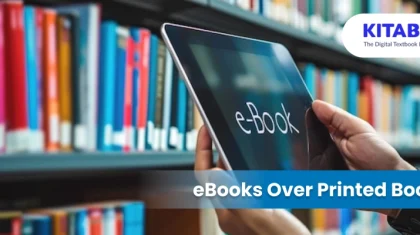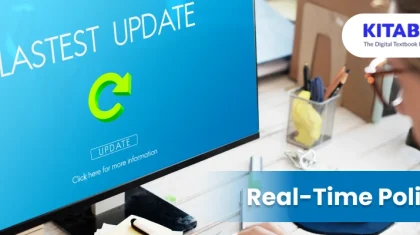
How to Choose the Right eBook Distribution Platform (2025)
Summarize this blog with your favorite AI:
What is eBook distribution?
eBook distribution is a complex and ever-evolving process with new players constantly entering the market as some existing ones closing shop. As the eBook publishing business grows, it is important to keep abreast with the changing business demands.
It is not enough to have high quality eBooks. As a publisher, you need effective eBook distribution services that will help you reach your audience and also scale as your business grows and you acquire new customers, data and resources.
Now, we compile everything you need to know to choose the right eBook distribution platform.
4 Things to Know Before You Publish Your Next eBook
1. Convert Your eBook into the ePUB3 Format
Most eBook distributors accept two formats: ePUB and .mobi. In fact, these two formats are also supported by most retailers and e-reading devices. The main difference between them is that .mobi is owned by Amazon, while ePUB is an open format which anybody can use.
If your ePUB is well-formatted it will be accepted by Amazon’s Kindle Direct Publishing platform and automatically be converted into .mobi. So, if you have your eLearning content in the form of MS Word or PDF, you just have to convert it into ePUB3 ( the latest standard) using an interactive eBook creation tool.
Here’s more on converting PDF to ePUB & which is the better format for ePublishing.
And here’s a guide on how to convert PDF to ePUB3 while keeping the format intact.
2. Design a Professional Cover Page
Most eBook distributors recommend different dimensions for the cover file of an eBook. For example, Amazon recommends a JPEG file with dimensions of 2,560 × 1,600 pixels (1:6 ratio).
And while the saying goes ‘don’t judge a book by its cover’, the fact remains that the first impression a cover makes, is a lasting impression. Ensure that you have a professionally designed cover page with the right dimensions so that your design appears as intended.
You can also create a cover page using the interactive tool you use to convert your PDF into ePUB3
Confused between ePub vs PDF? here are 6 Reasons you should go for ePUB over PDF.
Guide:
How to Automate PDF to ePub3 Conversion
3. Identify Your Keywords
When you publish your eBook on any digital publishing platform, you have to provide categories and keywords, which the platform will use to feature and distribute your eBooks to those searching for those category and keywords.
This is because digital publishing platforms like Amazon are algorithm-driven and will feature your eBooks based on the keywords or categories which users use to search for an eBook.
Here are the best eBook publishing strategies every publisher must know!
4. Exclusive or Multiple Platforms?
Once you have your file in the ePUB format, you are ready to publish and distribute your eBooks. While there are a range of digital publishing formats available, you will have to take a call on whether you want to take the exclusive route, that is, list on a single platform, or use multiple platforms to distribute your eBooks.
Choosing the exclusive option with Amazon has its perks and limitations. For example, you can opt for the company’s Kindle Direct Publishing (KDP) Select option scheme.
However, when you opt for this scheme, you cannot publish your eBook on any other platform for at least 90 days. Though you benefit in terms of free promotions and deals and also automatic Kindle Unlimited enrolment, a popular subscription service, which pays the publishers a percentage amount based on the number of pages of the eBooks read by its subscribers.
While there are other digital publishing platforms that offer attractive perks for exclusive publishing, Amazon dominates in the US and UK with 80% of the eBook distribution market share. In Canada, Kobo holds sway, while in Germany Tolino enjoys the highest market share. So, which one do you choose, exclusive or wide?
If you are trying to reach multiple markets, going wide would be the best way forward. However, if you are a small or a relatively new publisher, exclusive publishing with the main eBook distribution players may help you get noticed and build your presence.
While both exclusive and going wide have their pros and cons, it is a good idea to stick to what you choose for the long term as it will help you build a good relationship with your subscribers on any given platform.
Here are some best practices in publishing & distributing eBooks at scale.
Choosing Between Different eBook Distribution Formats
Generally, eBook distribution follows two formats: direct to retailers and using an aggregator. With direct to retail option, you can get higher royalties, but you will also have to upload your eBooks, along with their metadata, individually on all platforms.
Some of the major direct to retailers digital publishing platforms include Amazon’s Kindle Direct Publishing, Apple iBooks, Kobo, Scribd, Barnes and Noble.
In the second option, that is, using an aggregator, you can hire the services of aggregators to distribute your eBooks to online retailers, as well as their own book stores. These aggregators may charge you a fixed fee and/or commission out of your sales.
Top 3 Factors to Consider While Choosing an eBook Distributor
1. How is the royalty calculated:
This is one of the most complex aspects of eBook distribution services. Different digital publishing platforms consider different business models and have their own definitions of net/list price and the percentage they pay.
While choosing an eBook distribution service, understand how each distributor calculates the royalty you will receive – is it a percentage of what they receive, that is, list price after deducting their cut, or the actual list price, or the price that you give to the store.
Guide: How to create and deliver a DRM protected eBook. Download Now!
2. The size of their network:
You would want your eBooks to reach a wide audience so choose an eBook distribution service that will make sure that your book is available on all popular eBook stores such as Apple Books, Amazon, Kobo, Nook and Barnes & Noble’s.
With the right distributor, you will not only increase your reach but also cut down on your time on finding new markets and also eliminate pricing discrepancies, if any. The eBook distributor should also be able to take care of all legal work so you can focus on your core areas.
3. How trustworthy is the eBook distribution service:
Choose an eBook distributor who is trustworthy because by publishing and distributing on one platform, you will be able to build a long-lasting relationship with your subscribers. Otherwise, if you keep shifting from one platform to the other, you will not only lose existing readers but will also be seen as inconsistent.
Choose your eBook distribution partner carefully after scrutinizing their credentials, and talk to other users, both current and former, who have or are using their services.
Finally, make sure to have a clear agreement with your eBook distribution services provider which clearly lists factors such as commission, inventory, and the geographical locations they will cover. Also make sure that you are clear on all financial terms and that you address all financial and other liabilities before signing the dotted line.
To know more, please write to us at contact@kitaboo.com
Related:
- 5 Factors to Consider Before Choosing an eBook Distributor for your Publishing Needs
- 5 Reasons Why Publishers should opt for eBook Distribution Services
- How to Select the Best eBook Publishing Platform
- How to Identify the Best eBook Conversion Services
- 9 Best Cross-Platform eBook Readers
- How to Create an Interactive eBook in 10 Steps
- How to Select the Best Digital Publishing Platform
- Best Ebook Creation Software
- Digital Textbook Platform for K12 Publishers
- Digital Textbook Platform for Associations & Societies
- Digital Textbook Platform for Trade Publishers
- Digital Textbook Platform for Training Companies
- Digital Publishing Solution for Content Aggregators
Discover how a mobile-first training platform can help your organization.
KITABOO is a cloud-based platform to create, deliver & track mobile-first interactive training content.



